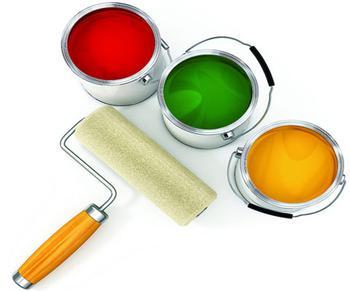Sea salt is the name given to salt extracted through seawater. We collect sea
salt by moving the brine (seawater) into PVC-floored salt evaporation ponds, and extracting salt from the
evaporite. The hot and dry climate of Pakistan allows us to evaporate water
from the brine solely through solar energy. The extracted salt contains numerous impurities, and must first by purified. We can provide sea salt processed for a number of uses, including the
following:
Edible Grade Salt
Food Grade Salt produced from sea salt gives a slightly different
taste than Table Salt produced from Rock Salt, and is believed to be better from ordinary
table salt in taste and texture. It can serve as a good substitute to regular table salt
because, although it lacks sufficient iodine, it contains several other healthy minerals not found in table
salt, including potassium, magnesium, calcium, and sulfate. We produce an A+ Food Grade Sea Salt was human consumption.
Industrial Grade Salt
Sea salt has hundreds of industrial applications. It is very
widely used in chemical
industries, for example, the Chlor-Alkali
industry, which uses chiefly
salt to manufacture chlorine
and caustic soda. Chlorine and caustic
soda are used further in the manufacture of paper. It is also used as a water softener. Soft water can more economically use soap and detergent, and is therefore ideal for cleansing purposes. Rubber manufacturers use salt to
separate rubber from latex. It is used in the metal industry to remove impurities from metal. We produce A
and B Grade Sea Salts for such industrial uses.
Bath Salts
Various kinds of sea salts can serve as bathing additives, and are believed
to possess healing and
therapeutic properties. Water softeners can
also be used as additives to a bath, which creates lather of better quality. They can reduce the "wrinkling" effect of prolonged exposure to water. Bathing with bath
salts can prove a very relaxing experience.
Sea Salt Sea Salt,Coarse Sea Salt,Refined Sea Salt,Natural Sea Salt Weifang Xinchang Chemical Co.,Ltd , http://www.xinchangchem.com Looking back at the history of the paint market, it is not difficult to find that the trajectory of brand competition at home and abroad is based on quality, brand, and service development.
Looking back at the history of the paint market, it is not difficult to find that the trajectory of brand competition at home and abroad is based on quality, brand, and service development.
For a long time, foreign brands have established high-quality technology and huge amounts of money to create advertising marketing, monopolizing the domestic high-end paint market. According to statistics, foreign brand coatings account for 45% of the domestic paint market share. It can be seen that the brand has a deep influence.
However, due to technical defects, domestic brands can only seek to survive in the low-end market. However, domestic companies have never given up the pursuit of a high-quality paint market, and competition in the high-end market is evolving.
In fact, under the premise of quality homogeneity, brand is just a way to divide the high school, low market. Brands cannot be a means of competition because the value of the brand cannot override the interests of consumers. Ultimately, the ultimate choice of rational consumers is the maximization of benefits. The brand value does not have much impact on long-lived durable goods. The well-known brands such as Panasonic and Hitachi are well illustrated in the Chinese home appliance market.
For durable goods, quality is the brand's mirror, and now domestic manufacturers are catching up on product quality, which means a major increase in product brand. In the paint market, if a brand also has a certain technical reserves or advantages, then the brand can have an existing value in this market. Once the technology is broken by competitors, the value of the brand will be greatly reduced.
When the quality and brand of foreign coatings face severe challenges, the service has become the focus and core of competition. Looking at the development of society, services are also the focus of future business operations. As people's needs change, services will become the main source of profit for business operations after products.
However, in the service sector, local companies clearly have taken advantage of time, place, and people. Local companies are close to the domestic market, understand the consumer psychology of the domestic market, understand the domestic consumer habits and interests, because they can provide more humane, more comprehensive services. Once the domestic companies join hands to make the "price war" killer, the paint market is very likely to repeat the appliance history.
Sea Salt
Another major use of salt is de-icing, removing ice from
a surface. Although rock salt is the more common type of salt for this purpose,
sea salt is also perfectly suited to perform the task. This works by spreading
diluted salt over the frozen surface. Since salt water has a lower freezing point than pure
water, ice melts away as
soon as it absorbs salt. We produce a C Grade Sea Salt for de-icing purposes.